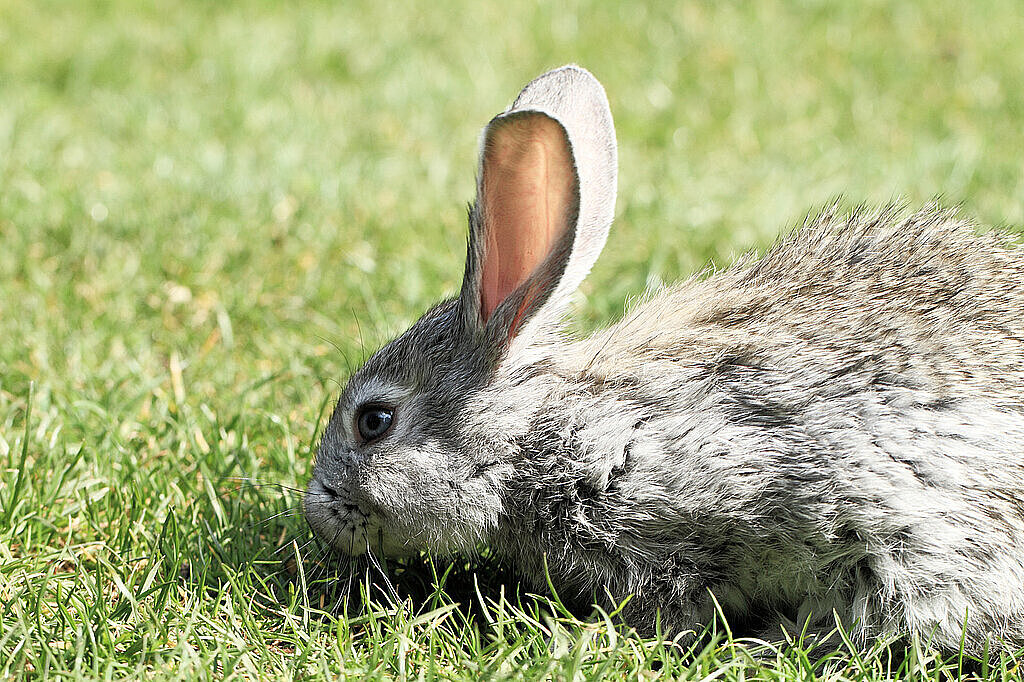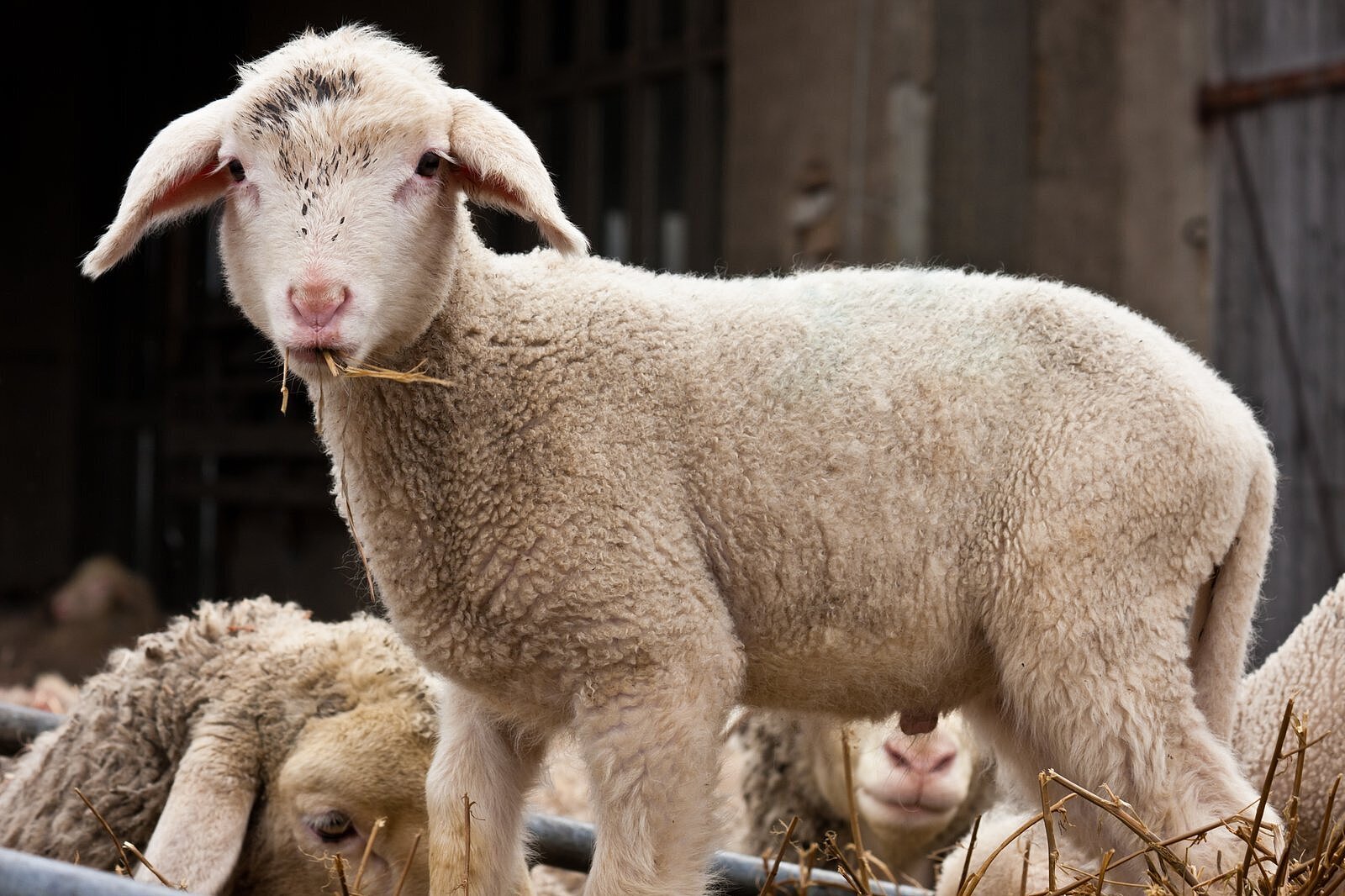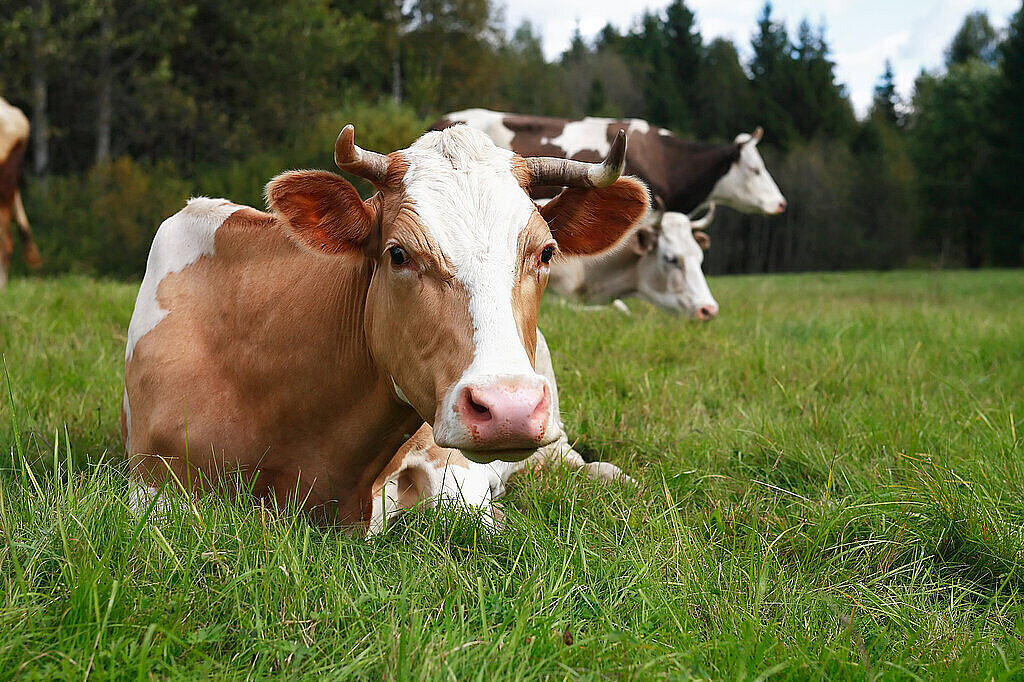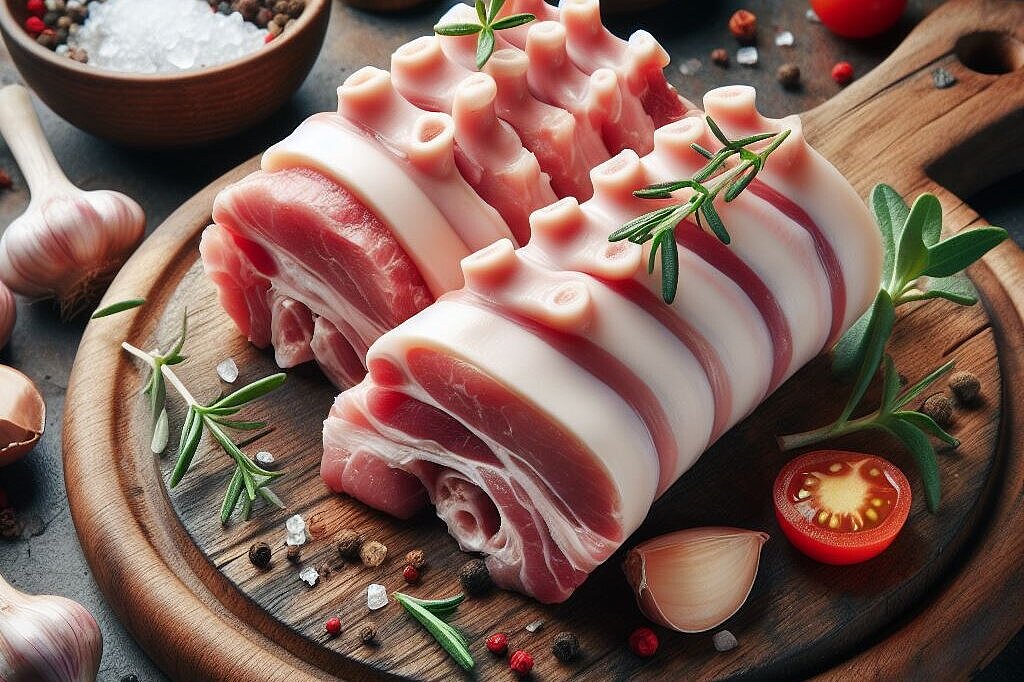Duck cartilage
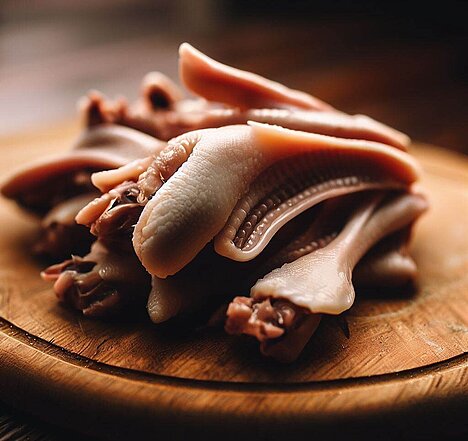
You may have heard of duck cartilage as a treat for dogs. But what is duck cartilage and how healthy is it for your four-legged friend? In this article, you'll find out everything you need to know about this ingredient.
What is duck cartilage?
Duck cartilage is the connective tissue that binds the bones of ducks together. It consists mainly of collagen, a protein responsible for the elasticity and strength of skin, hair, nails and joints. Duck cartilage is often dried or smoked and offered as a snack or chew for dogs.
What are the benefits of duck cartilage for dogs?
Duck cartilage has several benefits for your dog's health and well-being. On the one hand, it can support dental care by removing plaque and tartar when chewed. Secondly, it can promote joint health by maintaining cartilage mass and having an anti-inflammatory effect. It can also improve the quality of the skin and coat by stimulating collagen production. Duck cartilage is also a good source of protein, calcium and other minerals your dog needs.
What are the disadvantages of duck cartilage for dogs?
Duck cartilage is not without risks for your dog. On the one hand, it can trigger allergies or intolerances if your dog is sensitive to poultry. On the other hand, it can lead to digestive problems if he eats too much of it or doesn't chew it well. Duck cartilage can splinter and form sharp edges that can injure the gastrointestinal tract. Duck cartilage can also lead to obesity or nutritional deficiencies if it is fed as a substitute for a balanced diet rather than as a supplement.
How do I feed duck cartilage correctly?
If you want to give your dog duck cartilage, there are a few things you should bear in mind. Firstly, you should always pay attention to the quality and origin of the product. Only buy duck cartilage from trustworthy suppliers who do not use artificial additives or preservatives. Secondly, you should always pay attention to the size and quantity of the product. Only choose duck cartilage that is appropriate for your dog's size and age. Do not give your dog more than one or two pieces per week and, if necessary, reduce the amount of food on these days. Thirdly, you should always pay attention to your dog's reaction. Watch him chew and look for signs of discomfort or pain.
Duck cartilage can be a tasty and healthy snack for your dog if you feed it correctly. It can improve your dog's dental and joint health as well as skin and coat quality. However, it can also cause allergies, digestive problems or other complications if fed incorrectly. Therefore, always pay attention to the quality, size and quantity of the food and watch your dog chew it.
Properties 3
Are you looking for other ingredients with a specific property?
Just click on them to find more.
If you notice any signs of hypersensitivity or poisoning in your dog, you should see your vet immediately. We are not a substitute for a vet, but we try to be as accurate as possible. Every dog reacts differently and we recommend you get a second opinion or consult your vet if in doubt.
Stay healthy and take good care of your four-legged friend!😊
Similar to Duck cartilage
Rabbit cartilage is an animal by-product obtained from the joints and ears of rabbits. It consists mainly of collagen, a protein that is important for the formation and maintenance of connective...
Lamb cartilage is the connective tissue that surrounds the bones of lambs. It consists mainly of collagen, a protein responsible for the elasticity and strength of the skin, joints and tendons. Lamb...
Bovine cartilage is the connective tissue between the bones of cattle, which consists of collagen, proteins and water. It is very tough and elastic and has a high content of glucosamine and...
Pig cartilage is the connective tissue that surrounds and protects the joints of pigs. It consists mainly of collagen, a protein responsible for the elasticity and strength of skin, hair, nails and...
